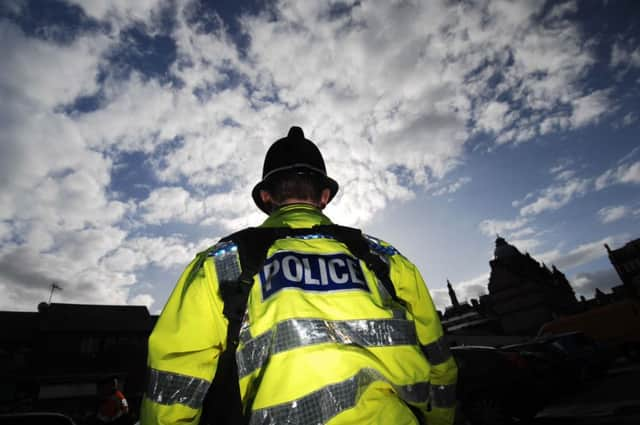Recorded rape rates at highest in decade, say police


Some 26,703 rapes were recorded by forces in England and Wales the year to December, a 40 per cent increase on the previous 12 months, the Office for National Statistics (ONS) said.
A total of 80,262 sexual offences were recorded last year, a 32 per cent rise, to reach its highest level since the introduction of the National Crime Recording Standard in 2002/03.
Advertisement
Hide AdAdvertisement
Hide AdThe ONS said the increasing figures were due to improvements in the way offences were being recorded by police, while charities reported a “dramatic” increase in victims coming forward in the wake of the Jimmy Savile scandal.
There were big increases in the number of sexual offences reported by all four of Yorkshire’s police forces. South Yorkshire Police saw a 67 per cent rise, North Yorkshire Police saw 45 per cent more reported sexual assaults, and Humberside and West Yorkshire saw rises of 35 per cent and 26 per cent respectively.
The number of recorded offences rose overall last year in South Yorkshire and the Humberside police force area, which now has the highest crime rate outside London.
West Yorkshire saw a five per cent drop in recorded crime, while North Yorkshire remained static, meaning it still has the second lowest crime rate in England.
Advertisement
Hide AdAdvertisement
Hide AdRecorded rates of violence against the person went up in all four police areas, though the numbers of acquisitive crimes fell for all forces except Humberside.
Overall crime recorded by police increased nationwide by two per cent to 3.8 million offences - the first time it has risen since 2003/04 - with violence against the person offences up 21 per cent and public order offences increasing by 14 per cent.
Although theft offences fell by five per cent last year, shoplifting rose to its highest level since 2002/03, with more than 325,000 offences recorded by police.
The ONS said: “This is the first increase in police recorded crime since 2003/04 but needs to be seen in the context of the renewed focus on the quality of crime recording.
Advertisement
Hide AdAdvertisement
Hide Ad“Although the latest figures show a small increase, the level of police recorded crime is still 20 per cent lower than in 2008/09 and 37 per cent lower than the peak in 2003/04.”
Meanwhile, the Crime Survey for England and Wales, a measure reflecting experience of crime, revealed a seven per cent fall in crime to 6.9 million incidents against households and adults.
Katie Russell, national spokeswoman for Rape Crisis England and Wales, said the charity was “cautiously positive” about the increase in police-recorded rapes.
“I tend to agree that the rise in cases is unlikely to respond to an increase in sexual offences,” she said.
Advertisement
Hide AdAdvertisement
Hide Ad“More people are willing to come forward. We have seen an increase in demand for our services, with survivors coming forward to talk about their experiences.
“But the overwhelming majority of survivors don’t report to police.”
The Survivors Trust, which represents 130 rape, sexual violence and child sexual abuse charities, said more victims have been willing to come forward in the wake of the Jimmy Savile scandal.
Chief executive Fay Maxsted said: “We have known for a long time that under-reporting is a real problem in terms of sexual offence cases.
Advertisement
Hide AdAdvertisement
Hide Ad“Previous estimates have suggested just 15% of sexual offences are reported to police for all kinds of reasons. Victims may feel fearful, ashamed or guilty.
“One of the effects of Operation Yewtree, in the wake of Savile, has been it has brought sexual cases to the fore.
“The convictions of Rolf Harris and Stuart Hall have encouraged people to feel justified in coming forward.
“All our agencies have seen dramatic increases in people coming forward - some have seen a rise of 50 per cent - although they may not necessarily have reported to police.”
Advertisement
Hide AdAdvertisement
Hide AdSouth Yorkshire Police saw a three per cent increase in crime in 2014, though recorded rates of theft and drugs offences fell.
Deputy Chief Constable Andy Holt said: “We are also dealing with a number of emerging and growing crime areas including cyber crime and on a daily basis respond to incidents which involve no crime such as collisions and civil disputes.”
Last year the gold-standard status was removed from police recorded crime figures after concerns the underlying data may be unreliable.
Paul Ford, from the Police Federation, said most crime was recorded correctly but said: “There must be a move away from the current over-reliance on crime statistics as the main gauge of policing effectiveness.”